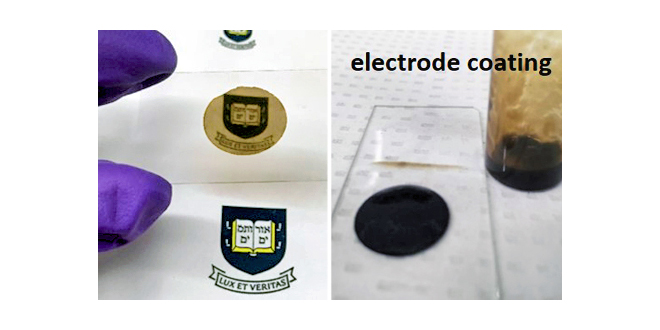New types of electrodes – positive and negative terminals – are considered essential for the development of a new generation of high energy-density batteries. As lithium-ion batteries begin to reach their capacity limits, many researchers are looking at lithium-sulfur as a solution. Sulfur is both lightweight and abundant, with a high theoretical energy capacity. However, existing lithium-sulfur battery technology suffers from a loss of capacity during cycling.
Now Yale scientists have developed an ultra-thin coating material that has the potential to extend the life and improve the efficiency of lithium-sulfur batteries.
In a study published online in the Proceedings of the National Academy of Sciences, researchers describe the new material – a dendrimer-graphene oxide composite film – which can be applied to any sulfur cathode.
According to the researchers, sulfur cathodes coated with the material can be stably discharged and recharged for more than 1,000 cycles.
The Yale team merged the mechanical strength of graphene oxide with the ability of a dendrimer molecule to confine lithium polysulfides. The result is a gel-like slurry that can be coated as a 100-nanometer-thin film onto sulfur electrodes.
“Our approach can be integrated with virtually any kind of sulfur electrode to increase cycling stability,” said Hailiang Wang, lead investigator of the study. “The developed film is so thin and light it will not affect the overall size or weight of the battery, and thus it will function without compromising the energy and power density of the device.”
Source: Yale News




















































